
China
13:15, 04-Feb-2017
WeChat data reveals China's passion for red packet exchange during Spring Festival
Updated
10:40, 28-Jun-2018
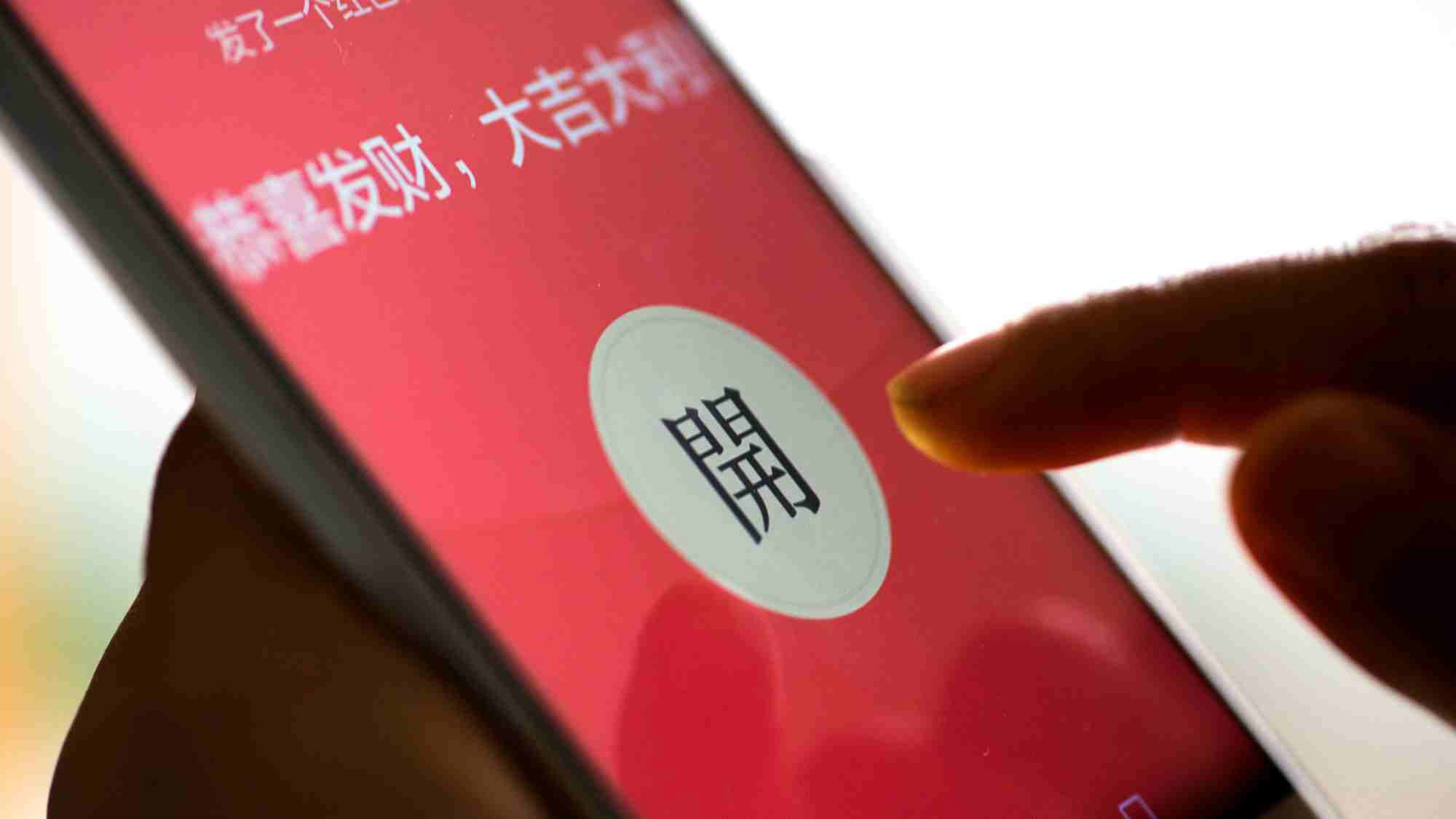
If you have never had the intriguing experience of sending or grabbing monetary gifts through WeChat, China’s major instant messaging app, especially amid the cheerful Spring Festival celebrations, you may find yourself already way behind the curve.
Instead of simply being a prevailing custom, exchanging “hongbao”, which literally translates to “Red Packet,” or “Lucky Money,” with family members or friends through the social network has almost become an integral part of the country’s Spring Festival celebration conventions, which traditionally include an annual family reunion, extravagant festive feast, as well as the Spring Festival Gala and amazing fireworks.
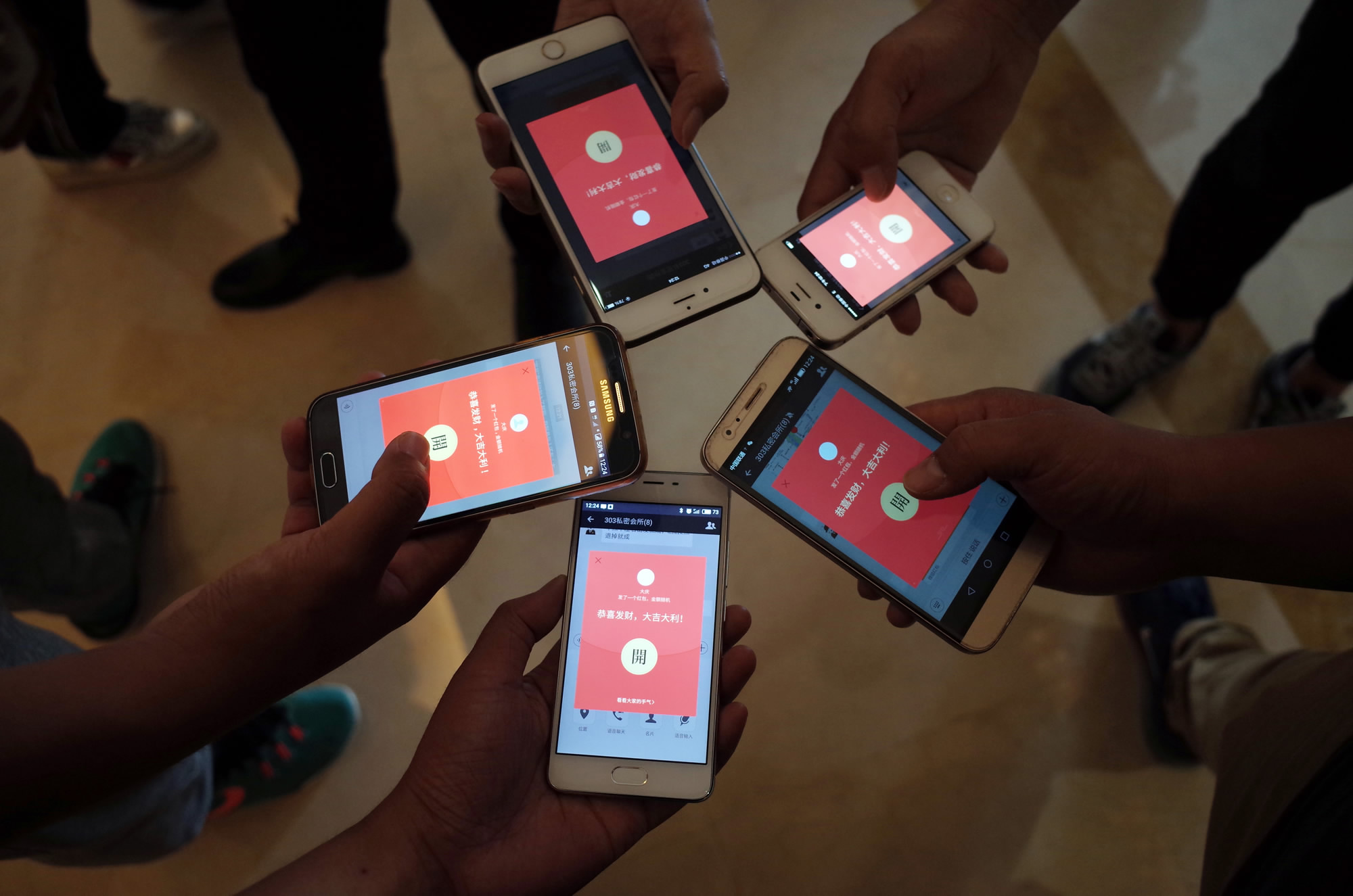
CFP Photo
CFP Photo
A report released on Friday by WeChat illustrated users’ behavior on the social platform during the national Chinese New Year holiday, and has provided a good reflection of China's passion with digital monetary gift swap.
According to the report, the total number of red packets sent and received during the five-day span from Chinese New Year’s eve to February 1 reached 46 billion, an increase of 43.3% compared with the same period last year. On the New Years’ eve alone, a record of some 14.2 billion electronic “hongbao” were exchanged, according to Xinhua News Agency.
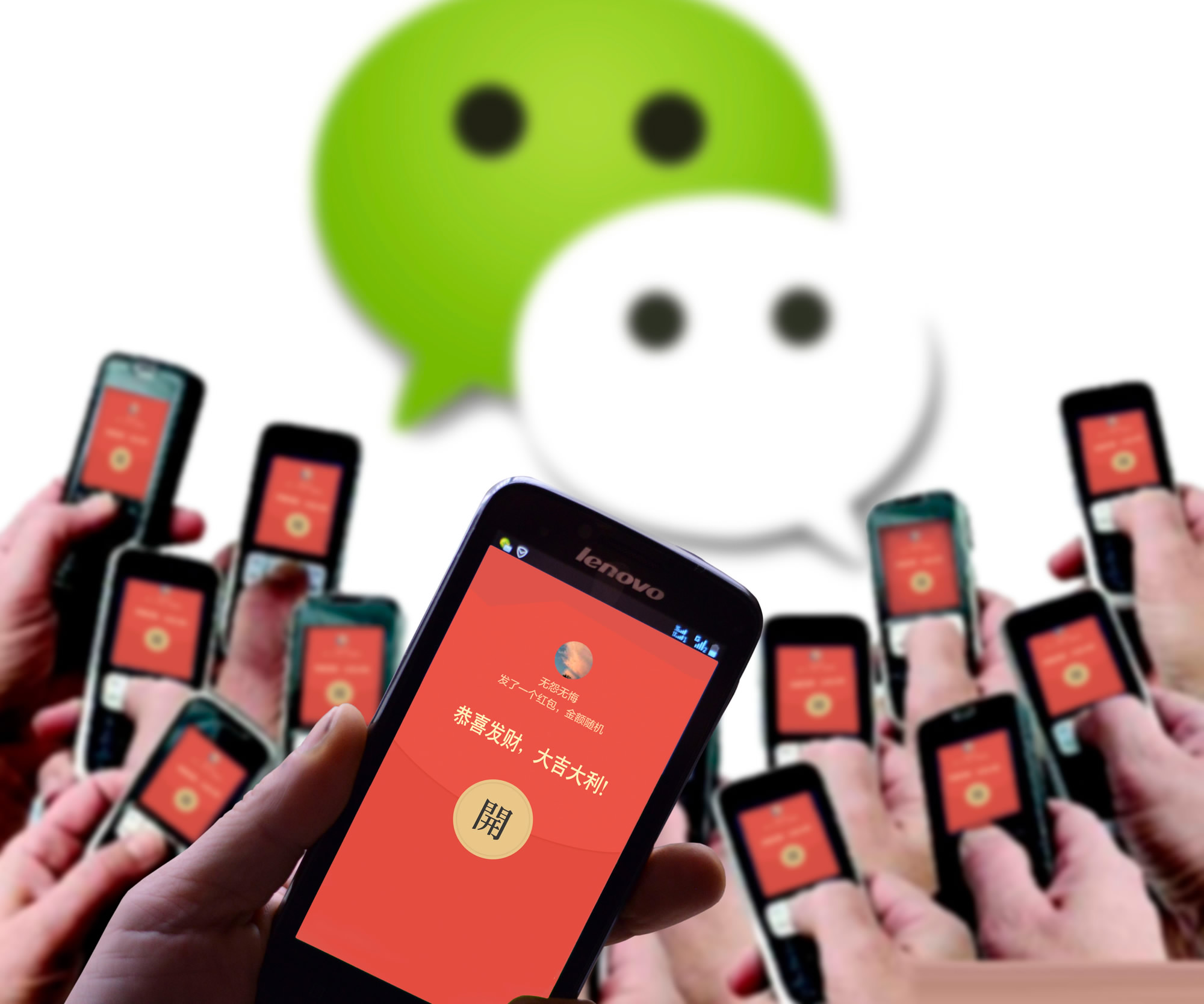
CFP Photo
CFP Photo
People born in the 1980s and 1990s are shown to be the most active red packet givers or receivers for claiming a total of 70% of all hongbao swapped, according to the data released. Geographically, people in south China’s Guangdong Province led in giving and receiving money on WeChat, with 5.8 billion red packets exchanged in the region. It was followed by east China’s Jiangsu and Shandong provinces, which respectively contributed 2.9 and 2.6 billion packets.
The report has also suggested that men tend to deliver more hongbao than women, with male-to-male red packets accounting for 32.4% of all packets given or accepted during the five-day Spring Festival period, while female-to-female transactions were only 25.5%.
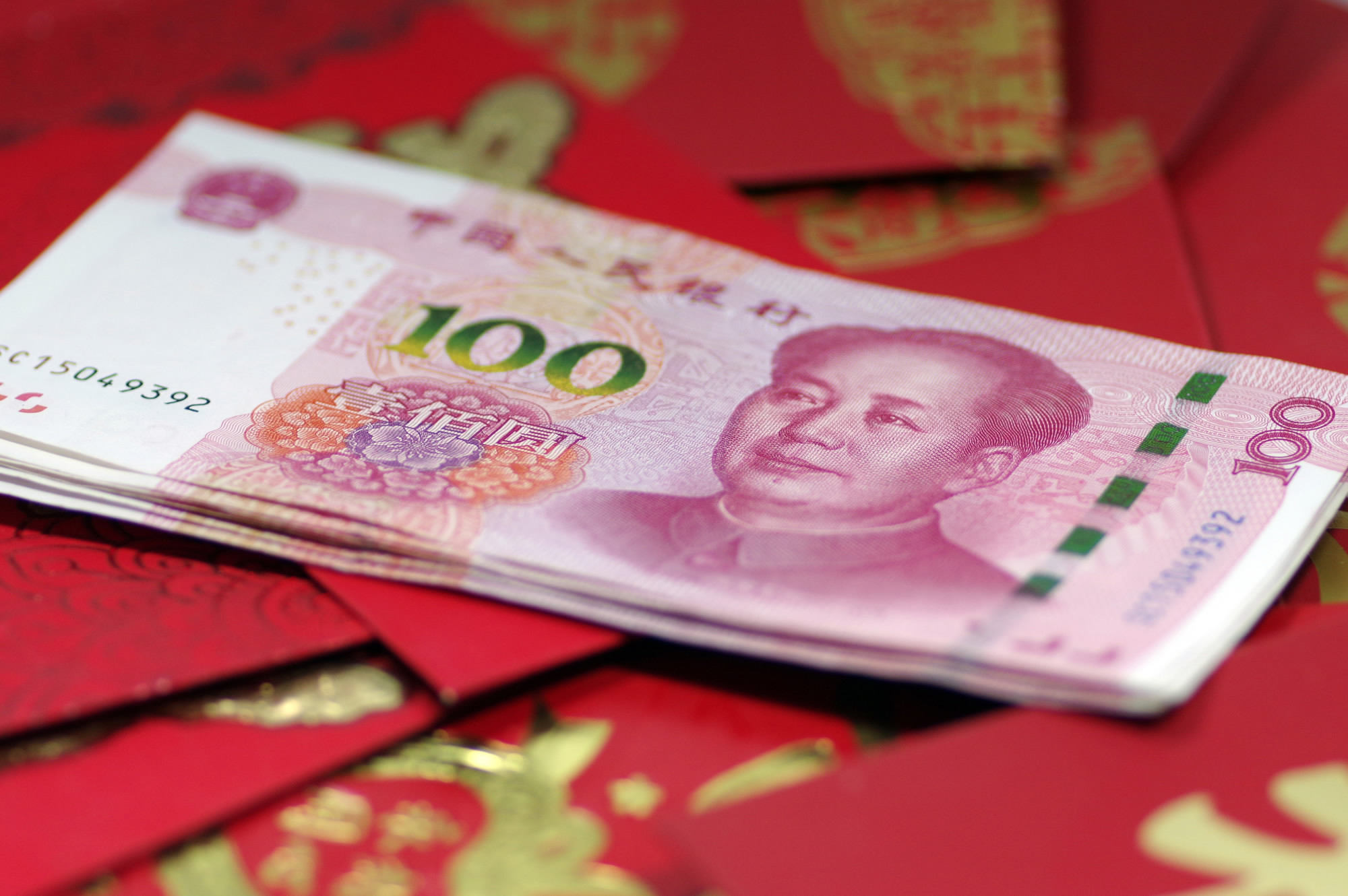
CFP Photo
CFP Photo
Enabling users to perform the time-honored Spring Festival tradition of giving hongbao stuffed with cash to friends and usually younger family members in a more convenient and entertaining way, WeChat has also provided people across the country and even overseas a platform to use funny stickers as a way to add appeal to people to send holiday blessings and share festive joy.
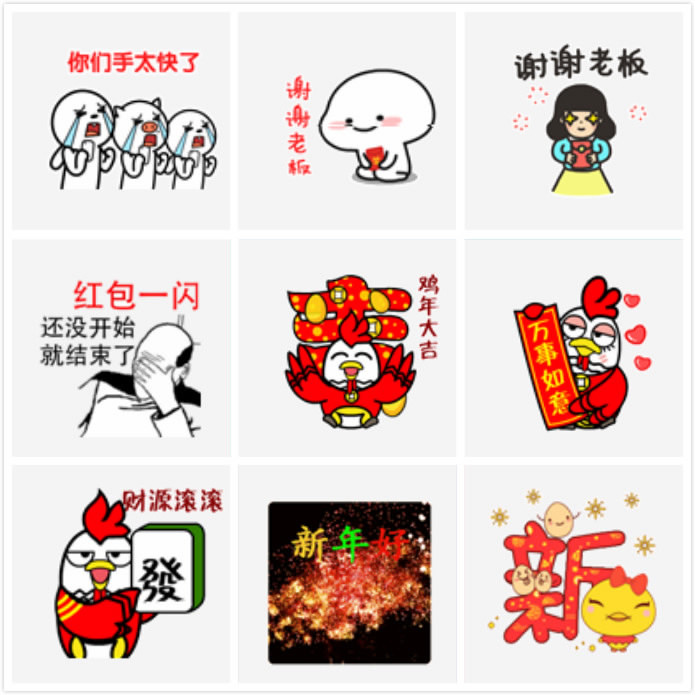
Popular stickers used on WeChat during the Spring Festival.
Popular stickers used on WeChat during the Spring Festival.
The data revealed that around 16 billion stickers, with part of them featuring distinctive rooster patterns, have been sent from the first to the fifth Lunar New Year’s day.
During the eve of the Spring Festival and the first day of Chinese Lunar New Year, WeChat has also witnessed a surge in minutes users placed on video and voice calls via the social network, which has hit a record high of 2.1 billion, demonstrating the changing method people prefer to reconnect and communicate during the festival.
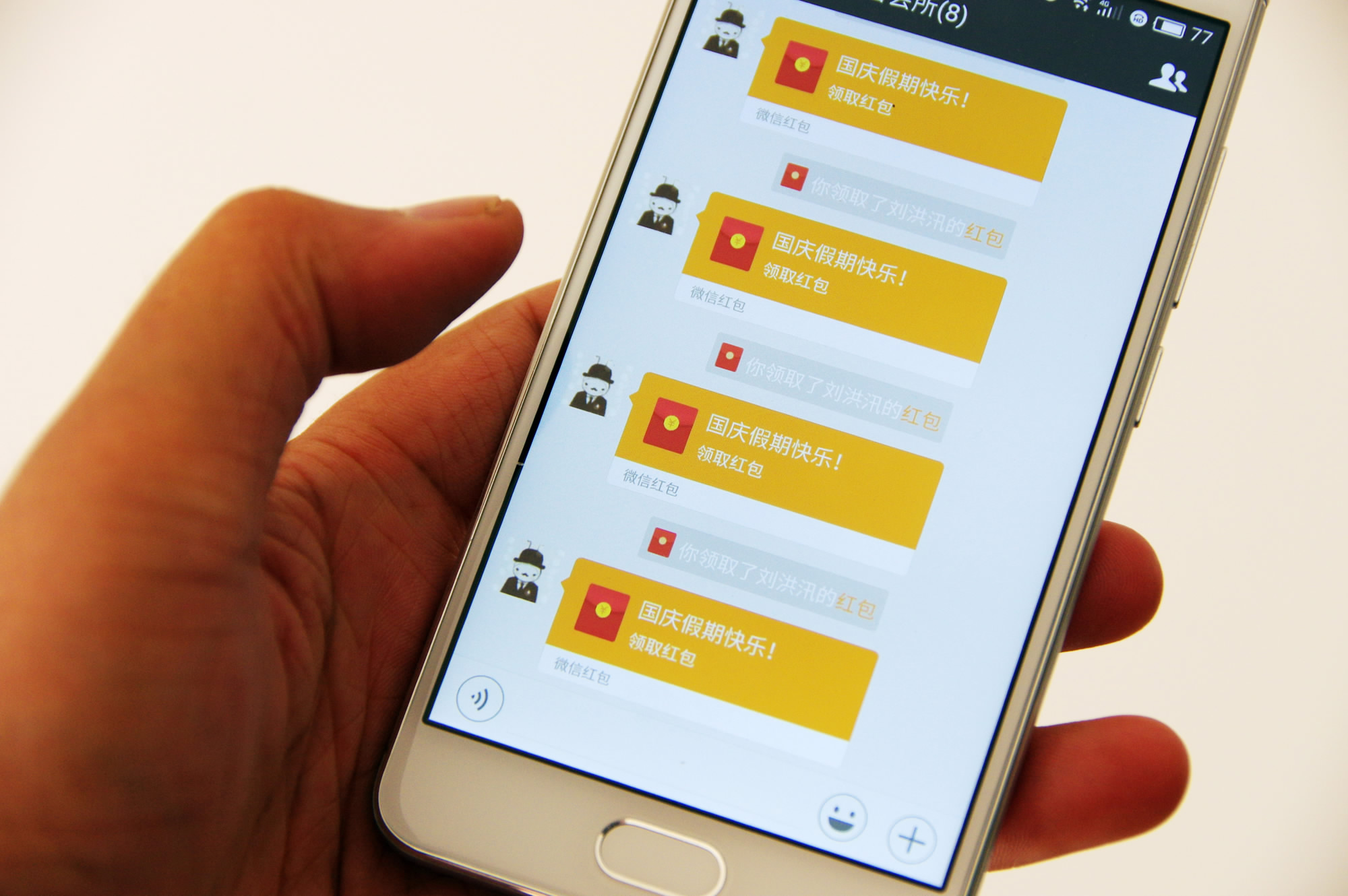
CFP Photo
CFP Photo
How much money did you give out or receive in your WeChat account during the just wrapped up seven-day national Spring Festival holiday? Have you ever used any amusing festive stickers and turned to WeChat video or voice call to express the best wishes to faraway friends or relatives while ushering in the Year of the Rooster? Share your experience with CGTN in the comment section!

SITEMAP
Copyright © 2018 CGTN. Beijing ICP prepared NO.16065310-3
Copyright © 2018 CGTN. Beijing ICP prepared NO.16065310-3